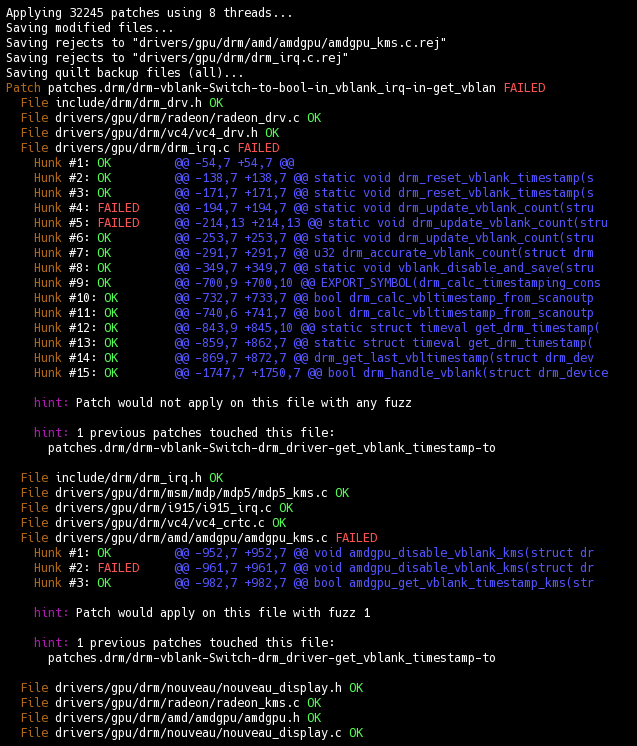This is very specialized reimplementation of quilt & patch in one. It supports
only the push command. The goal is to be very fast.
Usage: rapidquilt push [<options>] [num|patch]
Options:
-a, --all apply all patches in series
-d, --directory DIR working directory
-p, --patch-directory DIR
directory with patches (default: "patches")
-b, --backup always|onfail|never
create backup files for `quilt pop`
(default: onfail)
--backup-count all|<n>
amount of backup files for `quilt pop` to create
(default: 100)
-F, --fuzz <n> maximal allowed fuzz (default: 0)
--color always|auto|never
use colors in output (default: auto)
--dry-run do not save any changes
-A, --analyze ANALYSIS
run additional analysis while patching. You can use
this option multiple times to run multiple analyses at
once. Available analyses: multiapply
--stats print statistics in the end
-q, --quiet only print errors
-v, --verbose print extra information. Repeat for more verbosity. It
may affect performance.
--mmap mmap files instead of reading into buffers. This may
reduce memory usage and improve performance in some
cases. Warning: You must ensure that no external
program will modify the files while rapidquilt is
running, otherwise you may get incorrect results or
even crash.
-h, --help print this help menu
- only the
pushcommand - only patches in unified format
- date in patch files is ignored
- endlines must be the same in patch and patched file (e.g. both "\n" or both "\r\n") (always
--binarymode) - ... probably more that I don't know about
Patch application failure:


